Ellsworth’s Cinema of Swords: Arthur and Out
Tristan & Isolde (20th Century Fox, 2006)
Greetings, friends, and welcome to the last Ellsworth’s Cinema of Swords article, at least for a while.
I’ve enjoyed hanging out with you here on the regular, but circumstances have changed for Your Cheerful Editor, and my writing output must adapt to accommodate them. For a good while, I had reached an equilibrium in my writing, balanced between work for the day-job at Larian Studios, making progress on my nine-volume Musketeers Cycle of Alexandre Dumas translations, and churning into the 21st century for the Cinema of Swords review series.
But life is change: I’ve finished the Dumas translations, we’ve gone into pre-production on Larian’s next game, and perhaps most significantly, my health is not what it was, as over the last year, in addition to the other indignities of late middle age, I’ve developed late-onset asthma. And it’s hit pretty hard, diminishing my energy and forcing a decline in productivity in my side projects.
In addition to these articles for Black Gate, for a year or three I’ve been making two weekly postings over on the Substack platform, one for the Musketeers and one for Swords. I’ve had to face the fact that it isn’t sustainable and I need to get off that treadmill. So, both Substack series have been suspended, and likewise this is my last regular article for Black Gate.
Offline, I’ll still be writing every week, just at my own pace; eventually, I’ll have enough material for a second volume of Cinema of Swords, covering swordplay movies from the ‘90s up through the end of Game of Thrones. For quite a while, I had figured on following up the Musketeers books with a new translation (from Middle English) of Thomas Malory’s Morte Darthur, but earlier this year I got an idea for a new novel and I’m pursuing that instead — one chapter at a time, as my energy budget permits.
However, as a nod to that shelved King Arthur project, I decided to wrap up my Black Gate articles with coverage of three Arthurian screen adaptations from the late noughts. See what you think.
Tristan & Isolde
Rating: ****
Origin: UK/USA/Germany/Czech Republic, 2006
Director: Kevin Reynolds
Source: 20th Century Fox DVD
This is a fine version of one of the better-known Arthurian tales, adapted to give it an authentic medieval look and feel while keeping the characters’ emotional arc front and center. This grounds it in realism that supports its famous tragic love story, but doesn’t prevent the pacing from sagging badly in the second act. Nonetheless, there’s plenty to enjoy in this classy retelling.
Tristan is set in that unspecific, misty Middle Ages when war and politics were still governed, at least in part, by the rules of chivalry. The isle of Briton is ruled by a half dozen warring tribes, kept at each other’s throats by the canny manipulation of the King of Ireland, at this point powerful and ruling a united island, coercing tribute from the British kingdoms and raiding their coasts. (If you were hoping for King Arthur and Camelot, sorry, they’re Not Appearing in This Film.) The royal Welsh parents of Tristan (James Franco) are killed in one of the Irish raids, and the traumatized boy is adopted by King Marke of Cornwall (Rufus Sewell).
Meanwhile, across the narrow sea, the headstrong Isolde (Sophia Myles), daughter of the Irish king, is unhappy about her betrothal to the king’s best general, Sir Morholt (Graham Mullins), a cruel brute who wields a poisoned sword. Morholt is sent to Cornwall to collect slaves in tribute from King Marke, but on their return to their ships, the Irish are ambushed by Tristan, now a knight and leader of men. He frees the captives and slays Morholt in single combat but is poisoned by the big cheater’s blade. Taken for dead, he’s put to sea in a small boat for an ocean burial, but wind and wave take the boat to the coast of Ireland, where Isolde finds the wounded Tristan and secretly nurses him back to health in a beach-side love shack. The princess conceals her name and rank, and when Tristan sails back to Cornwall, he doesn’t know the identity of the secret lover who healed him.
Meanwhile, Marke has been working to unite the British tribes, so the canny Irish king decides to keep them divided by throwing a tournament and promising Isolde as a bride to the victor’s king, along with enough land and gold to ensure the other mini-monarchs will be lethally jealous. Tristan fights in the tournament as Marke’s champion, and only after his victory does he realize that he’s fought to win the hand of his one true love for his foster father.
Angst! Forbidden yearning! Longing glances! As an actor, James Franco may not have a broad emotional range, but he’s got sullen sulking down cold, so his side of the love triangle is solid. However, medieval adultery is a bad time for all concerned, which includes the viewer, because the middle third of this movie is a stone drag. Fortunately, King Marke is still busily trying to unite the Britons, but the Irish king is having none of it, and thanks to treachery, betrayal, and a convenient secret passage, the film’s final act spins up into a fine tower siege and pitched battle. The ending is quite satisfying, despite its variance from Arthurian standard.
To sum up, act two of Tristan & Isolde is boring, but on the plus side of the ledger its first and final acts are excellent, the acting is all pretty good, the medieval costumes and period combat are on point, and the film is beautifully shot in gorgeous locations in Ireland and the Czech Republic. Give it a spin.
The Last Legion
Rating: **
Origin: UK/Italy/Tunisia/France/Slovenia, 2007
Director: Doug Lefler
Source: Genius Products DVD
This is sort-of an Arthurian adventure, the kind of story that tries to place the hazy legends of King Arthur among verifiable historical events, and like most such endeavors, it’s of indifferent success. Adapted by Valerio Massimo Manfredi from his 2002 novel of the same name, the plot is implausible and all over the place, both structurally and geographically, ranging from Rome to Capri to Hadrian’s Wall in northern Britain. The story conflates events from the Roman withdrawal from Britain in 410 and the brief rule of the last Caesar, Romulus, in 475, splitting the difference and settling the movie’s date on 460. It’s unimportant, really, because like every other Arthurian tale, The Last Legion ends up outside of history in the imagination space called the Matter of Britain.
The story is a bit of a mess, involving Romulus (Thomas Brodie-Sangster), being deposed by the Goth King Odoacer (Peter Mullan) despite the efforts of his bodyguard Aurelianus (Colin Firth) and his mentor Ambrosinus aka Merlin (Ben Kingsley). Romulus and Ambrosinus are imprisoned on the island of Capri under the hateful watch of the Goth warrior Wulfila (Kevin McKidd), so Aurelianus gathers a ragtag band of surviving Imperial Guards to rescue them, along the way picking up a doughty female fighter from southern India, Mira (Aishwarya Rai). Conveniently, the dungeon of Capri is also the secret hiding place of Julius Caesar’s legendary sword, (ex-)Calibur, and Romulus finds it during his rescue. After he’s betrayed by their last Roman allies, the whole gang head off to Britain to — okay, look, their reasons don’t make any sense but by this point the viewer no longer cares.
So, the story’s a mess: strike one. Strike two is the unfortunate casting of Colin Firth as the lead, Aurelianus, because he’s entirely wrong for the role — his particular brand of charisma just doesn’t work in this context, and given his palpable lack of onscreen enthusiasm, he’s aware of it. He’s no good at being paternal to Romulus, and though he’s supposed to romance Mira, there are no sparks between Firth and Rai. On top of this, the usually dependable Ben Kingsley is just phoning it in as Ambrosinus/Merlin, and with two leads basically AWOL, you’ve got a big empty hole in the middle of your movie.
There is no strike three, however: the other cast members manage to stagger on and prop up the rest of this thing. Child actor Brodie-Sangster as Romulus almost saves the film on the basis of his performance alone, and McKidd brings his fierce blue-eyed intensity to the role of the villain Wulfila. As the Indian warrior Mira, Rai also does a fine job, and her skills as a dancer make her a convincing martial artist. The combat, overseen by fight director Richard Ryan, is generally quite good: the extended rescue fight on Capri is well-paced and innovative, and if the climactic battle of legionaries vs. barbarians is overlong and repetitive, there are few movies in this genre that escape that problem. That doesn’t quite amount to a recommendation, but The Last Legion isn’t a total loss; just keep your expectations modest. Very modest.
Merlin (or The Adventures of Merlin), Season One
Rating: ***
Origin: UK, 2008
Directors: James Hawes, et al.
Source: BBC DVDs
This production is almost contemporary with the BBC’s Robin Hood (2006-2008), but unlike that show, which never quite jells, the Merlin series seems to know what it wants to be almost from the beginning. It takes the elements of the legends of King Arthur and the Knights of the Round Table and recasts them into a structure more suitable for an ongoing TV series, doing so without deviating from the basic concepts that have made the Arthurian genre so durable.
In this reimagining, Merlin (Colin Morgan) arrives as a youth in a Camelot ruled by King Uther Pendragon (Anthony Head) where he becomes a servant to young Prince Arthur (Bradley James) and a protégé of wise old court physician Gaius (Richard Wilson). Only Gaius is aware that young Merlin is already a powerful spellcaster, which is just as well because Uther has forbidden the practice of magic on pain of death. Merlin is also advised by an oracular CGI dragon (voiced by John Hurt) imprisoned in a spectacular cave far below Camelot’s royal castle, a creature of the Old Religion who informs the young wizard that it is his destiny to protect Arthur and make sure he survives to follow Uther as king.
This setup enables the series to adopt all the useful tropes of familiar hero-with-a-secret-identity stories — much like Don Diego masquerading as Zorro, in every episode Merlin must use his powers to save Arthur or Camelot from some magical threat, but without ever revealing himself as a wizard. This reliable formula works well with the episodic nature of the Arthurian tales, which are built around fantastic quests and mysterious threats: magical plagues, vengeful witches, cursed magic weapons, poisoned chalices, and creatures such as undead knights, cockatrices, wicked fairies, unicorns, and the Questing Beast.
Tonally, this is pretty family-friendly, so don’t expect Game of Thrones edginess, but the writing is quite good for inoffensive corporate entertainment. The acting is decent, the characters are well-realized, and most of them show actual development over the course of the season. The costumes are a bit cheesy and the knights’ broadsword battles are mediocre, but the setting, shot at the fabulous Château de Pierrefonds northeast of Paris, really works as Camelot, and the CGI creatures are quite good, leagues beyond the embarrassing monsters in the Kevin Sorbo Hercules series a decade earlier.
If you want to just skim Merlin to see if you’d like it, watch episode 5, “Lancelot,” about you-know-who; episode 7, “The Gates of Avalon,” with the aforementioned wicked fairies; episode 9, “Excalibur,” about you-know-what; and episode 10, “The Moment of Truth,” in which Arthur and Merlin defend a village against bandit raiders, Seven Samurai-style. If those don’t hook you, young knight errant, then find yourself a different quest.
Where can I watch these movies? I’m glad you asked! Many movies and TV shows are available on disk in DVD or Blu-ray formats, but nowadays we live in a new world of streaming services, more every month it seems. However, it can be hard to find what content will stream in your location, since the market is evolving and global services are a patchwork quilt of rights and availability. I recommend JustWatch.com, a search engine that scans streaming services to find the title of your choice. Give it a try. And if you have a better alternative, let us know.
Cinema of Swords (Applause, June 15, 2023)
THE NEAR FUTURE: I’ve got several books trundling down the assembly line toward you, as the long-awaited completion of the Musketeers Cycle is upon us at last. Book Eight, Shadow of the Bastille, will be published independently next month in trade paperback and ebook formats, and the final volume, Book Nine, The Man in the Iron Mask, will appear next spring from Pegasus Books of New York and London. Bookmark my website, swashbucklingadventure.net, to keep up with my ongoing work as both Lawrence Ellsworth and Lawrence Schick. Goodbye for now, friends — I’ll see you ‘round the fencing ring!
Previous installments in the Cinema of Swords include:
Beware of Greeks
Peak ‘90s Wuxia
Ashes of Time
Consider the Rapier
They Seek Him Here…
The Darkness Before the Dawn
Young Horatio Hornblower
Two-Thirds of a Miracle
Wolves and Scorpions
Zhang Yimou
Swords in the Arthouse
Pirates Rise from a Watery Grave
Dragons and Wolveses
LAWRENCE ELLSWORTH is busily promoting the Cinema of Swords compilation from Applause Books, a volume that was born right here at Black Gate! That book, out now, covers swordplay movies up through the ‘80s, but Ellsworth is continuing with new material for a Volume Two and is now working his way up through the 2000s.
Meanwhile, Ellsworth soldiers on at his mega-project of editing and translating new, contemporary English editions of all the works in Alexandre Dumas’s Musketeers Cycle; the seventh volume, Court of Daggers, is available now as an ebook or trade paperback from Amazon, while the eighth, Shadow of the Bastille, is being published in weekly instalments at musketeerscycle.substack.com. The ninth and final volume, The Man in the Iron Mask, will be published early next year by Pegasus Books. Ellsowrth’s website is swashbucklingadventure.net. Check it out!
(Ellsworth’s secret identity is game designer LAWRENCE SCHICK, who’s been designing role-playing games since the 1970s. He now lives in Dublin, Ireland, where he works for Larian Studios and was Principal Narrative Designer for the Dungeons & Dragons videogame Baldur’s Gate 3.)
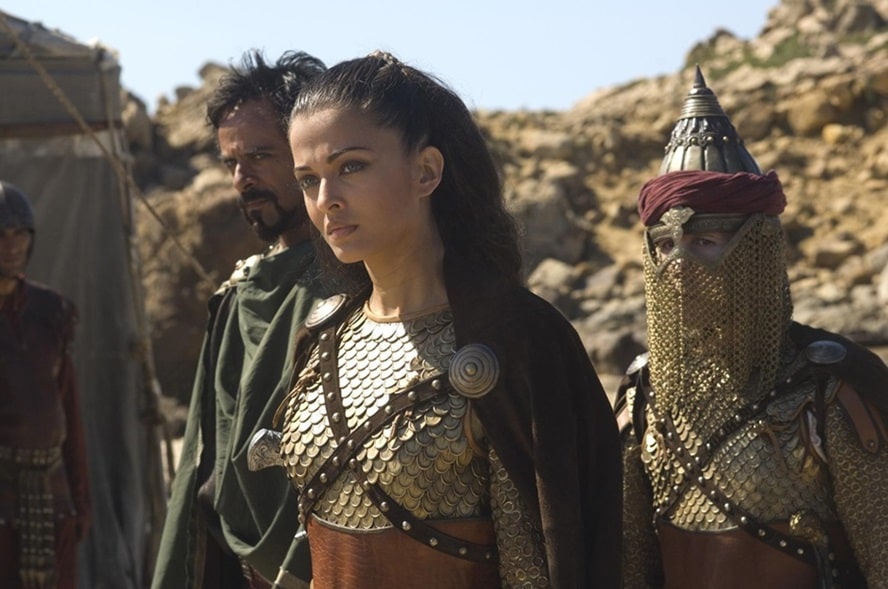
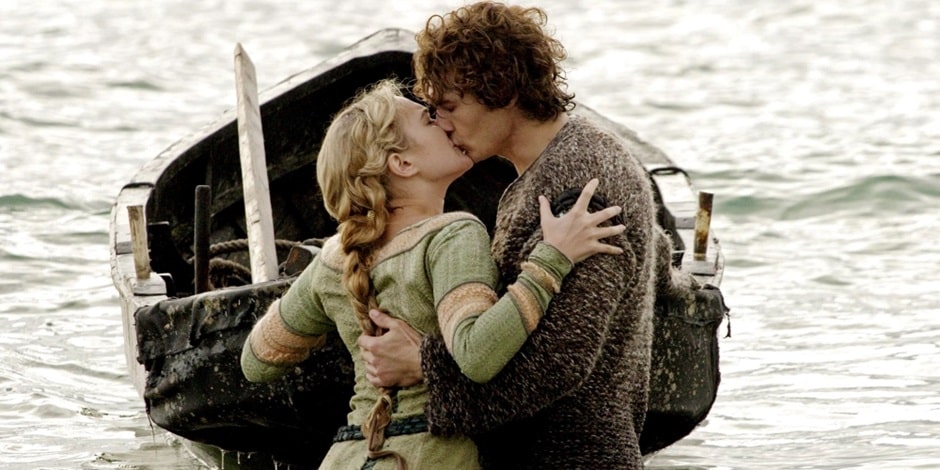
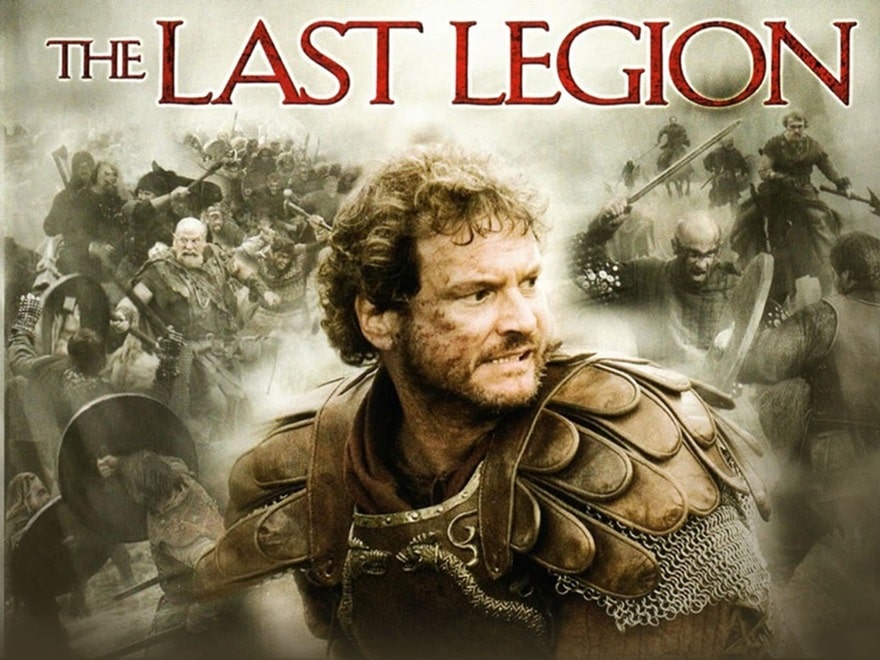
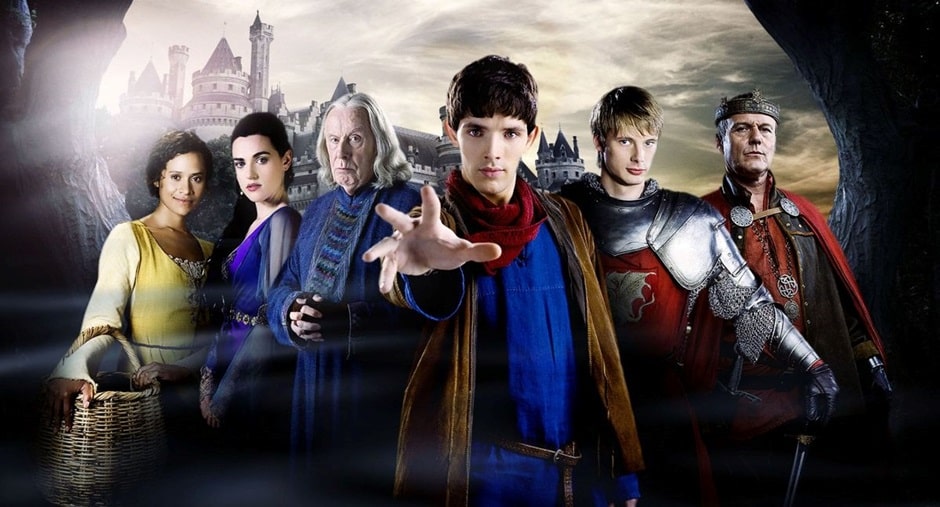
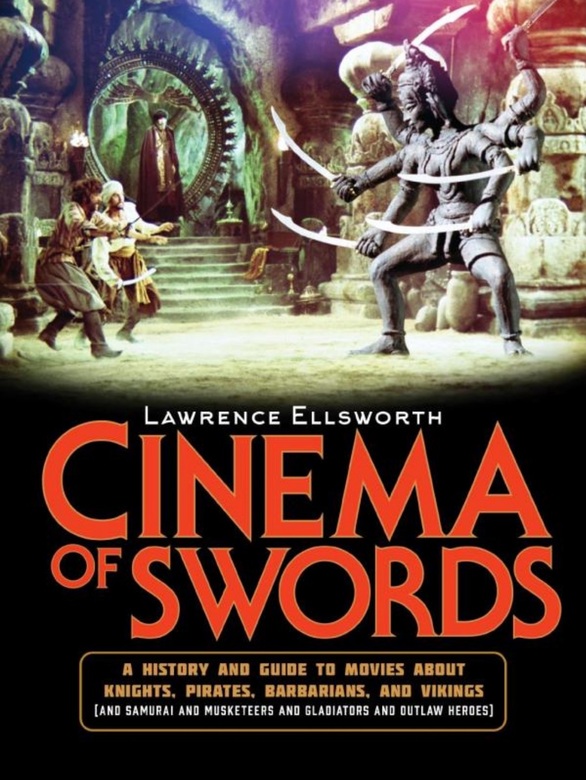
Hurrah!! Congratulations on the completion of the Musketeers, and best wishes on your novel! Very glad you’re not letting the asthma keep you down.
Sorry to hear about the asthma, which is way worse to live with than the disappointment I and many readers will feel at your absence from BG. Best wishes on finding medical relief, as well as being able to continue with your other projects, and thank you for all your many fine contributions here…you will be missed!
Thank you for all of these, sir, and best wishes for whatever projects lie ahead. You have proven yourself a parfit gentil knight.
Many thanks for all the good film recommendations and great and humorous reviews! I will try to hunt down your Dumas translations, in the meantime.
I am sorry to see this series come to an end. I have enjoyed reading these over the past year and even began watching Hercules and Xena after your “Beware of Greeks” article. I’ve also bought all of your Dumas translations and look forward to completing the set with the last two. I can’t imagine the work that went into those translations. Best of luck with the next projects.
The LAST Ellsworth’s Cinema of Swords? M****!
I’ve seen both movies (and I agree with your assessment) but have never seen the TV series. I’ll have to give it a look. Congratulations on finishing the saga of the Musketeers and I look forward to picking up your next volume in the Cinema of Swords compilation but most of all wanted to say “Thanks”.
Thanks for showing us so many great films and warning us of so many that are not so great. You took the hits so we didn’t have to and I’m grateful. And as one asthmatic to another, don’t give up.
I’m sorry to see you go from Black Gate. I really enjoyed reading your articles over the years. I might even go back to reread them. Thank you for your work.
Thanks for this wonderful article series.